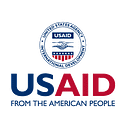CATALYZE Launches Early Childhood Care and Education Support in Paraguay
Expanding access to high-quality ECCE can improve children’s development and learning and may unlock economic opportunities for Paraguayan women. Paraguayan women are about 30% less likely to participate in the formal labor force than Paraguayan men (Dirección General de Estadística, Encuestas, y Censos 2017). While the gap in labor force participation can be attributed to numerous factors, it may be influenced by time constraints resulting from unpaid care work. According to the International Labor Organization (ILO), women perform over three times more unpaid care work compared to men globally. Facilitating access to high-quality childcare could reduce time constraints resulting from domestic labor, potentially improving mental health, increasing agency, and enabling women to engage in income-generating activities more fully.
The Government of Paraguay (GoP) has committed to improving access and quality of early childhood care and education (ECCE) through its National Plan 2023–2030, led by the Ministry of Children and Adolescents (MINNA), and Kunu’u, the National Strategy for Comprehensive Early Childhood Care. In 2020, the GoP established an inter-ministerial team, Equipo Nacional de Primera lnfancia (ENPI), to improve coordination on early childhood issues.
CATALYZE ECCE Paraguay
USAID supports the GoP in improving national early childhood and women’s economic empowerment priorities by funding both formal and informal education center improvements through the CATALYZE ECCE Paraguay Activity (ECCE Paraguay).
During an April 23, 2024, launch event of ECCE Paraguay in Asunción, Paraguay, USAID, implementing partners, Palladium representatives, and government and civil society members convened to discuss the program and preview how stakeholders would collectively reach its goal of improving the lives and educational outcomes of over 2,700 children and the economic opportunities of female caregivers across 52 community and educational centers.
“I am very impressed by the emphasis given to localization in the implementation of the program, in tune with USAID’s vision. Supporting local organizations will ensure local capacity development and sustainability.”
— Alfonso Velazquez, USAID/Paraguay — Rule of Law Specialist / CATALYZE ECCE Activity Manager
Activity approach
ECCE Paraguay (February 2024 — September 2025) leverages the expertise of multiple local implementers — Fundación Alda, Global Infancia, Fe y Alegría, and Fundación Capital to deliver a comprehensive package of support to early childhood development centers, female teachers, households with children 0–6 years of age, and directly to children, including:
- Increasing access to high-quality ECCE in rural and peri-urban areas by supporting children in highly vulnerable situations.
- Creating and strengthening formal and informal early childhood care spaces by improving development and learning spaces for girls and boys.
- Raising awareness on the importance of early learning stimulation through play and positive parenting and facilitates positive early childhood experiences through socialization in school and community.
- Improving early childhood development environments through training on knowledge, skills, and behaviors for families and ECCE workers.
- Providing quality teaching resources to ECCE centers and families, as well as strengthening the institutional ECCE framework through action planning that supports national priorities on protection of children.
- Supporting female teachers to complete their diplomas in early childhood and training parents of families on positive parenting to support child learning.
- Raising awareness of early childhood care through engagement of civil society.
- Conducting evidence-based, interactive sessions with households with children ages 0–6 enrolled in ECCE Paraguay centers that address attitudes and behaviors around men and women’s roles in childcare, home, and work in order to improve women’s livelihood outcomes, including enhanced economic resources, intrahousehold dynamics, and wellbeing.
Additionally, the Activity works with Economía y Estadísticas para el Desarrollo (E+E), a local impact evaluation firm, and La Facultad Latinoamericana de Ciencias Sociales (FLACSO), a Paraguay-based university, to develop and assess impact data, learning, and evidence generated under ECCE Paraguay. With decades of combined experience, both organizations will lead the research that seeks to understand the extent to which pairing ECCE with family engagement around women’s workforce participation can lead to improvements in children’s learning outcomes and as well as women’s quality of employment, intrahousehold dynamics, and physical and emotional wellbeing.
Findings from the implementation activities and research will be integrated into a broader packaging and dissemination effort to make the case for blended finance approaches to address substantial global education and childhood care funding gaps and improve and sustain learning outcomes for children and youth globally, particularly those most vulnerable. The findings will also be used to inform future programming and best practices for what USAID and partners can do to ensure maximum impact for vulnerable pre-primary age children.
Learn more
